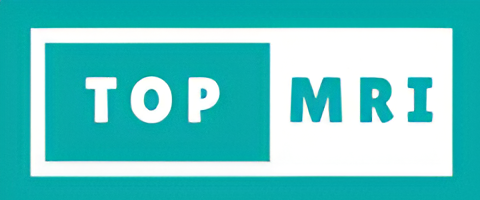
- Home
- Services
- Locations
- MRI Scan
- Greater London Area
- London – Marylebone, W1G 7HE – 3.0 T MRI Scan – £300
- London – Harley Street, W1U 2HX – Open MRI Scan – £500
- Middlesex – Enfield, EN2 8JL – 1.5 T MRI Scan – £300
- West Middlesex – Isleworth, TW7 6AF – 1.5 T MRI Scan – £300
- Surrey – Epsom, KT18 7LX – 1.5 T MRI Scan – £300
- Surrey – Ashford, TW13 3AA – 1.5 T MRI Scan – £300
- Surrey – Guildford, GU2 7XU – 3.0 T MRI Scan – £300
- Kent – Sidcup, Bexley, DA14 6LT – 1.5 T MRI Scan – £300
- North West England
- Manchester – M80 4AN – Open MRI Scan – £500
- Greater Manchester – Manchester, SK8 7NB – 1.5 T MRI Scan – £279
- Greater Manchester – Whythenshaw, M23 9LT – 3.0 T MRI Scan – £300
- Greater Manchester – Stockport, SK2 7JE – 1.5 T MRI Scan – £300
- Cumbria – Cockermouth, CA13 9HT – 1.5 T MRI Scan – £279
- Cumbria – Penrith, CA11 0AH – 1.5 T MRI Scan – £279
- Lancashire – Preston, PR4 0AP – 1.5 T MRI Scan – £279
- Lancashire – Fylde, FY8 1PF – 1.5 T MRI – £300
- North East England
- East Midlands
- East of England
- West Midlands
- South West England
- South East England
- Wales
- Yorkshire and the Humber
- Greater London Area
- CT Scan
- Full Body MRI Scan
- Ultrasound
- MRI Scan
- Patients
- Referrers
- Prices
- 0333 344 1811
[email protected]
Rectal Cancer
- Uncategorized
-
Sep 24
- Share post
Rectal Cancer: Symptoms, Causes, Diagnosis, Treatment, and Future Outlook.
Disclaimer:
This blog is for informational purposes only and should not be taken as medical advice. Content is sourced from third parties, and we do not guarantee accuracy or accept any liability for its use. Always consult a qualified healthcare professional for medical guidance.
What is Rectal Cancer?
Rectal cancer is a malignancy originating in the rectum, the final 12-15 cm of the large intestine, often as adenocarcinoma (95%) from glandular cells. It shares traits with colon cancer but has unique staging/treatment due to pelvic location. Stages 0-IV based on invasion/metastasis. In 2025, ~45,000 US cases, part of colorectal cancers, with declining rates from screening but rising in under-50s.
Symptoms
Symptoms include rectal bleeding (bright red blood), changes in bowel habits (diarrhea, constipation, narrow stools), abdominal/rectal pain, tenesmus (incomplete evacuation feeling), mucus discharge, fatigue/anemia, weight loss, and bowel obstruction in advanced cases. Symptoms mimic hemorrhoids/IBD, delaying diagnosis.
Causes
Genetic mutations (APC, KRAS) drive polyp-to-cancer progression. Risks include age (>50), family history, syndromes (Lynch, FAP), IBD, diet (high red meat/low fiber), obesity, smoking, alcohol, and sedentary lifestyle. In 2025, microbiome alterations contribute.
Diagnosis
Screening (colonoscopy, FIT) detects early. Diagnosis involves digital rectal exam, colonoscopy/biopsy, CT/MRI for staging, and CEA monitoring. Molecular testing (MSI, KRAS) guides therapy. In 2025, AI colonoscopy enhances detection.
Treatment
Localized uses neoadjuvant chemoradiation, then surgery (LAR, APR). Advanced adds chemotherapy (FOLFOX), targeted (bevacizumab), immunotherapy (for MSI-high). In 2025, organoid models personalize treatment.
Future Outlook
In 2025, 5-year survival 67%, 90% localized. Advances like immunotherapy raise metastatic survival to 20%. By 2030, vaccines/AI could achieve 80% survival.
Sources
The information for rectal cancer is sourced from NCI’s “Rectal Cancer Treatment” for overview; Mayo Clinic’s “Rectal cancer – Symptoms and causes” for symptoms; PMC’s “Rectal Cancer: Current Trends and Future Perspectives” for updates; Healthline’s “Rectal Cancer: Symptoms, Causes, Diagnosis, and Treatment” for diagnosis; Cleveland Clinic’s “Rectal Cancer” for treatment.